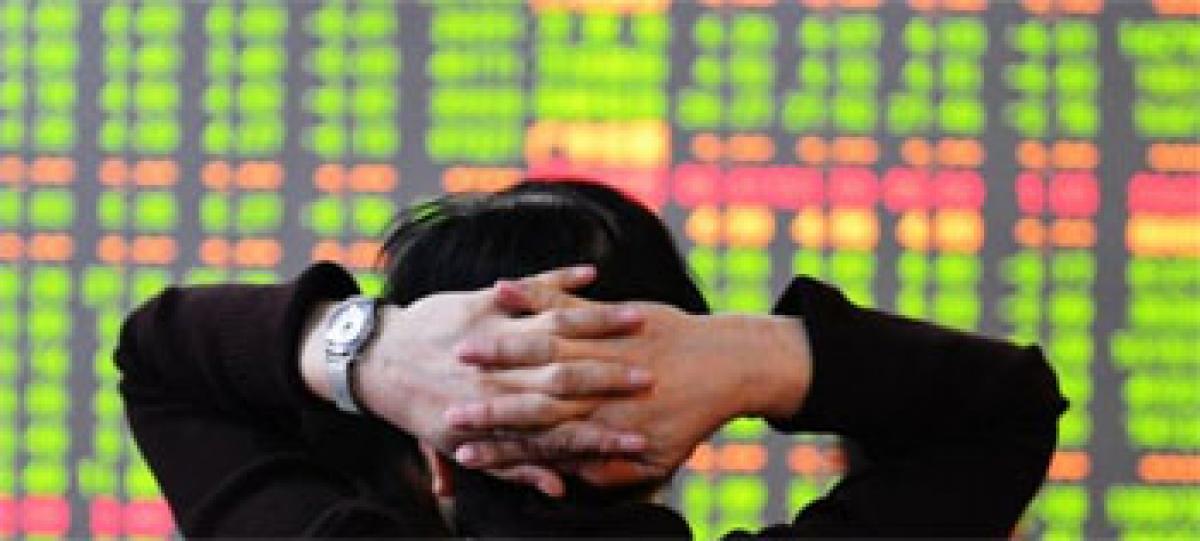.jpg) 2016 has started with a big bang for China's stock markets. On Monday, first trading day of 2016, CSI 300 an index of China’s biggest stocks crashed more than 7%, resulting in the application of newly introduced " circuit brakers" (halt of stock markets) for the day.
2016 has started with a big bang for China's stock markets. On Monday, first trading day of 2016, CSI 300 an index of China’s biggest stocks crashed more than 7%, resulting in the application of newly introduced " circuit brakers" (halt of stock markets) for the day.
On that fateful day, the stock brokers terminals are full of green! In China,red is green and green is red - for them red is auspicious - so red colour for stocks that make gains; green colour is for the losers.
China has recently proposed to create a “super-regulator”, combining three separate agencies (China Securities Regulatory Commission , China Banking Regulatory Commission and China Insurance Regulatory Commission) into a single, powerful regulator responsible for monitoring all the financial entities - banks, insurers, brokerages, asset managent companies etc, in view of frequent roller-coaster rides in their stock markets.
The move comes in the wake of stock market crash of China that started in June of 2015 , sending jitters in the world financial markets. Since June 2015, the Shanghai Composite Index and Shenzhen Indice have lost an unnerving 40% or so.
The Chinese stock markets, of late, have recovered some 20% from the lows of August 2015, on account of strong arm and adhoc measures taken by the Chinese government like ban on sale of shares for six months by the big institutional investors who own more than 5% in any company, suspension of trading in half of 2800 listed companies etc., A fresh correction seemed inevitable after the 20% odd recovery from the lows of 2015. However, the immediate trigger for Monday's fall is the likely lifting of six month ban imposed on selling of shares by the institutional investors from 8th of January.
Before the 2015 crash began, Chinese stock markets have gone up by a whopping 150 percent between June 2014 and June 2015. Main reason for this spectacular stock market rally was that a lot more Chinese people started buying stocks with borrowed money, known as " margin trading ". During this period, the amount of officially sanctioned margin trading in the Chinese stock market ballooned from 403 billion yuan to 2.2 trillion yuan. As more Chinese people jumped into the stock market in the hope of instant wealth, peer-to-peer (P2P) websites offering loans for stock investing have mushroomed.
A Chinese investor can borrow up to five times of his capital using P2P sites, while brokers allow leverage of only up to three times. They can also take positions in almost all the 2800 listed stocks with peer-to-peer financing , whereas brokers extend margin finance only for 900 of the traded shares. One indicator of the risk involved in such P2P margin financing lies in the high interest rates charged by these peer-to-peer financing sites.
They typically charge rates of up to 1.7 percent a month or equivalent to an annualized interest rate of more than 22 percent and almost triple of the typical margin cost charged by a brokerage. So at a time when China’s stock market has slumped from its peak, investors who took P2P loans faced the double whammy of high borrowing costs on their share holdings that are falling in value, which accentuated the stock market crash.
The legend about Chinese zodiac is that the Jade Emperor (the Emperor in Heaven) ordered that animals would be designated as calendar signs and the twelve that arrived first would be selected. 2016 will be the Year of the Monkey year according to Chinese zodiac. The Year of the Monkey will start from Feb 8th. Even before the Monkey has arrived in China, their stock markets have started topsy-turvy jumps.
Surely, manic Monday is not the kind of start to 2016 that the Chinese authorities were hoping to see for their stock markets. If the sell-off continues, the Chinese authorities may wade in again with their strong-arm measures, keeping the "Super Regulator" proposal aside.
By V Venkateswara Rao
(The author is a management professional and alumnus of IIM-Ahmedabad)

.jpg) 2016 has started with a big bang for China's stock markets. On Monday, first trading day of 2016, CSI 300 an index of China’s biggest stocks crashed more than 7%, resulting in the application of newly introduced " circuit brakers" (halt of stock markets) for the day.
2016 has started with a big bang for China's stock markets. On Monday, first trading day of 2016, CSI 300 an index of China’s biggest stocks crashed more than 7%, resulting in the application of newly introduced " circuit brakers" (halt of stock markets) for the day. 















